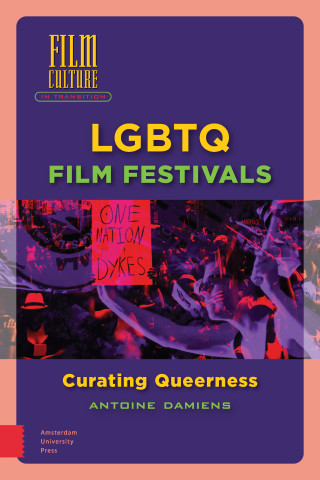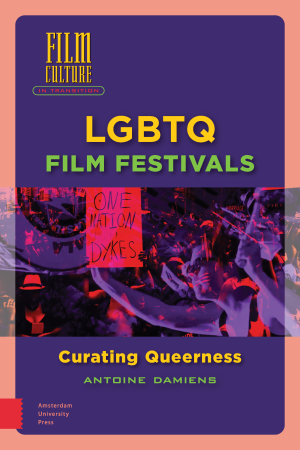Introduction. Festivals, Uncut: Queering Festival Studies, Curating LGBTQ Film Festivals.
-Pre-screening: constituting festival studies
-Queering festival studies: critical festival studies and the festival as a method
-Labour of love: desiring scholars/festivals
-The cut: a note on methodology
-Curating the book
-Speaking in queer tongues: a note on terminology
Chapter 1. Festivals that (did not) Matter: Festivals' Archival Practices and the Field Imaginary of Festival Studies.
-Cruising the archives
-Compromising evidences: ephemeral traces in the archives
-Unpacking the archives: (dis)ordering ephemeral traces
-Festivals that did not matter: festivals' archival practices and historiography
-Making history: on queer festival studies' historical project
-Festivals that matter: festival studies' field imaginary, methods, and political project
-'Doing justice' to ghosts: critical festival studies
Chapter 2. The Queer Film Ecosystem: Symbolic Economy, Festivals, and Queer Cinema's Legs
-Now you can see it= early gay and lesbian festivals, film cultures, and film distribution
-Soon at a theatre near you= Towards LGBTQ distribution
-Cultural fields: regimes of taste, queer relays, and the queer film ecosystem
-Distribution: queer film cultures, relays, and cultural fields
-Geographic relays: cultural fields in Europe and in America
Chapter 3. Out of the Celluloid Closet, into the Theatres! Towards a Genealogy of Queer Film Festivals and Gay and Lesbian Film Studies
-1970s: critics/scholars, curation as a praxis of canon-building, and gay and lesbian cinemas
-1980s: Cruising the protest, organizing gay and lesbian cinema
-1990s: Professionalizing queer cinema, disciplining scholars
-Festival as object / field of research: insider/outsider and critical festival studies
Chapter 4. Festivals as Archives: Collective Memory and LGBTQ Festivals' Temporality
-'I like to watch=': queer festivals' visual architectures
-Festivals' visual architectures, temporality, and cultural memory
-Festivals as archives: temporality and festivals' curatorial practices
-Festivals as archivists: documenting, representing and historicizing festivals.
-'Films bring us together': archives of feeling, affect, and queer cultural memory
Chapter 5. Images+Translation: Imagining Queerness and its Homoscapes
-Centre/periphery, festival tours, and festivals' geopolitical imaginary
-Festivals, gay languages, and the globalization of sexuality
-Film as gay language
-Catalogues, gay languages, and world-making: LGBTQ festivals and the globalization of sexuality
-Festivals as homoscapes: LGBTQ festivals, reverberations, and the disjunctive nature of globalization
Conclusion. The Impossibility of Festival Studies? On the Temporalities of Field Intervention and the Queering of Festival Studies
-The paradoxes of identity: doing justice to LGBTQ festivals
Bibliography
Filmography
Index

